3 reasons you should own a portable power station
The desire for electricity can be a choice or necessity; in either situation, a power station can help.
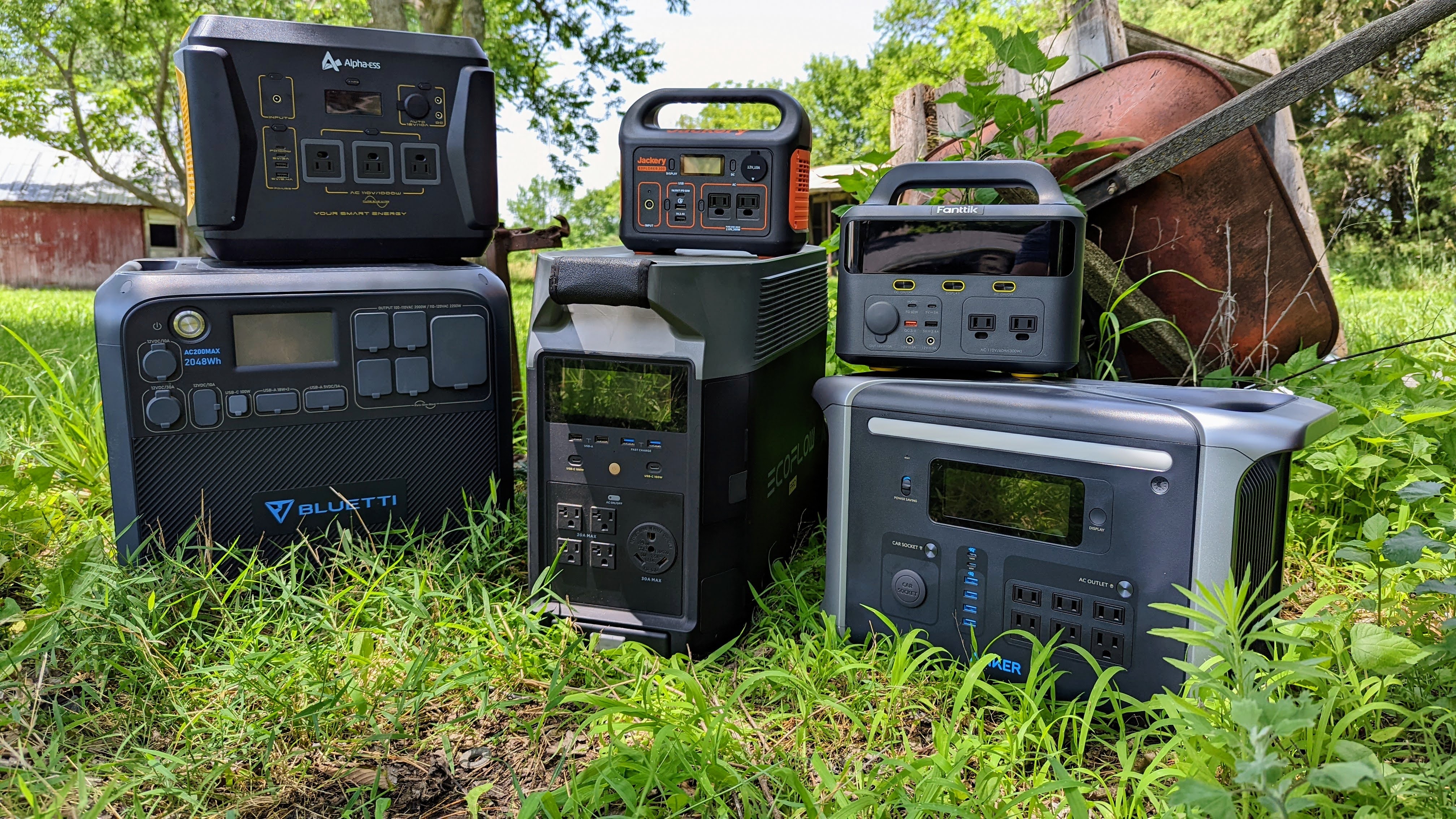
Electricity is something that many people take for granted. But when it's no longer available, it can cause significant disruption in our lives. I'm not even talking about a power outage.
There are so many things that we rely on electricity for that during times that we know there won't be power, like camping, we often forget the little things that still do. Of course, when there's a power loss for your home, it can be a very bad situation. Here are three reasons why you should own a portable power station.
Power when there isn't any
Why you can trust Android Central
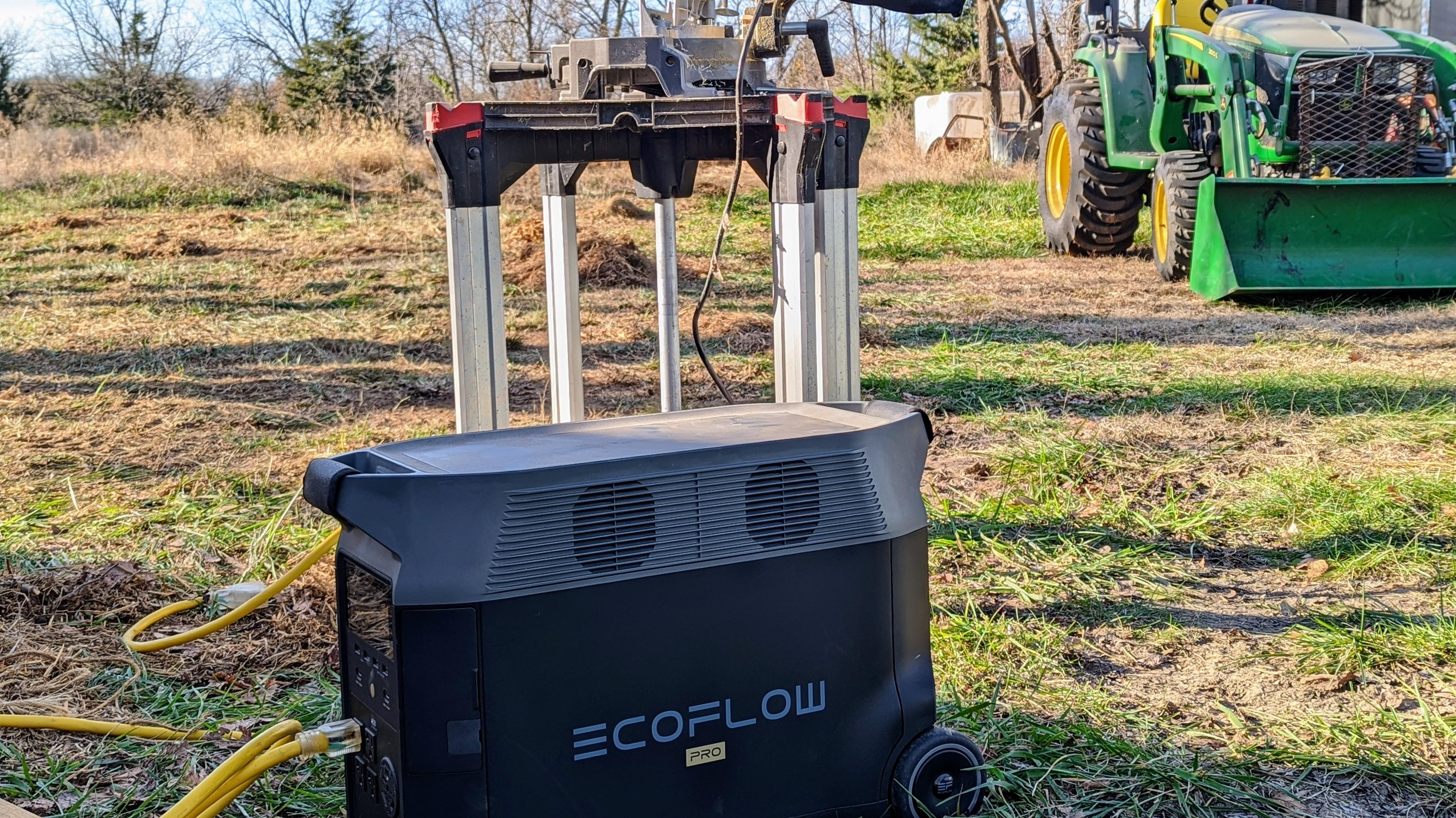
Perhaps the best use case for a power station is for moments when power is unexpectedly lost. Whether that is from a storm, malfunctioning equipment, a planned outage, or whatever causes you do not have electricity in your home.
Losing a key utility like electricity in your house can cause everything from lost productivity, to financial loss of food going bad, to even worse situations where it impacts those with medical needs. These are moments where a power station can be very beneficial.
One of the first things a person should do when looking at a power station is determine the electrical requirements of the devices they want to keep going.
Making sure you have the best portable power station for your particular set of needs is important. In the time I've been reviewing these devices, I've learned quite a bit about different appliances and how much wattage they use. This information is something I never thought about until I had an electrical source with a finite amount of power.
When you want to keep things in your home running when the power goes out, you'll want to consider a power station like the EcoFlow Delta Pro or the Bluetti EP500 series.
These large units can act as a UPS that provides high wattage output and have a lot of electrical capacity. These units offer an output of over 2000W, meaning you can power your refrigerator, medical equipment, maybe a heater, and more. My Delta Pro has saved my family several times in power outage situations.
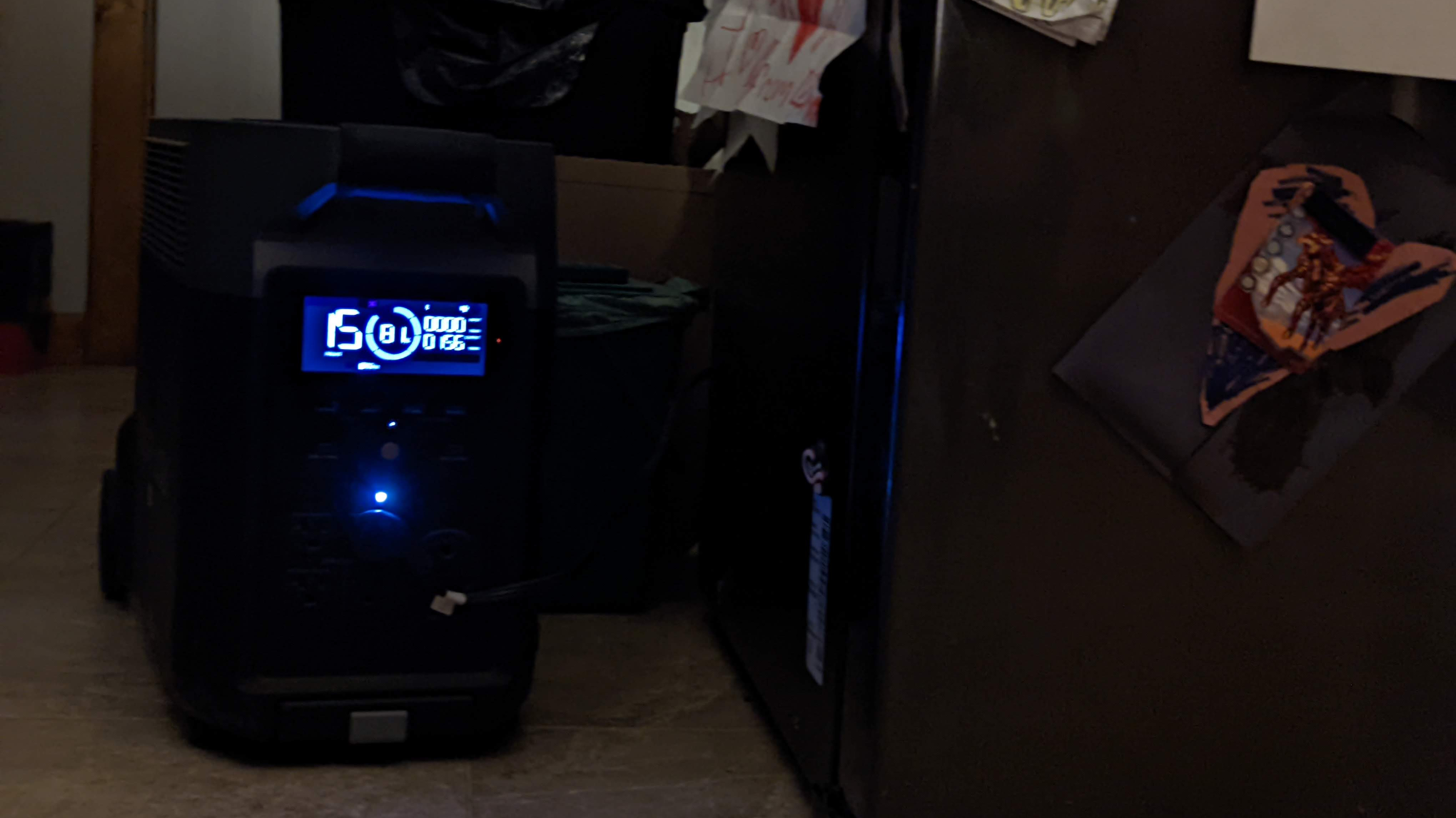
These two units also allow for expansion with additional battery packs. These expandable systems allow you to have more capacity to run devices for longer.
While both the Delta Pro and the Bluetti units are portable, they can be wired into your home's electrical system. By using the home panels each company offers, when the electrical grid goes down, these panels will automatically disconnect the grid and switch to the power stations.
It's a good idea to contact an electrician to help install any device that will directly interface with your home's wiring.
This switch is very important because it prevents something called back feeding. The basic idea is that, if not correctly disconnected when your power station comes online, it can actually send electricity back through your home's wiring and eventually end up in the power lines. If this happens, it poses a very real danger to power linemen and other utility workers who may be trying to restore power.
Should you decide to install a switch to disconnect your home from the electrical grid and use the power station, be sure to have a qualified electrician handle the installation part to avoid any potential accidents. But, you don't have to use one of these panels.
You can use the outlets on the unit directly and plug whatever you need into it for your power. Whatever direction you choose to use your power station to handle any power outages, you'll be glad you have something ready to go when it happens.
Power where you want it
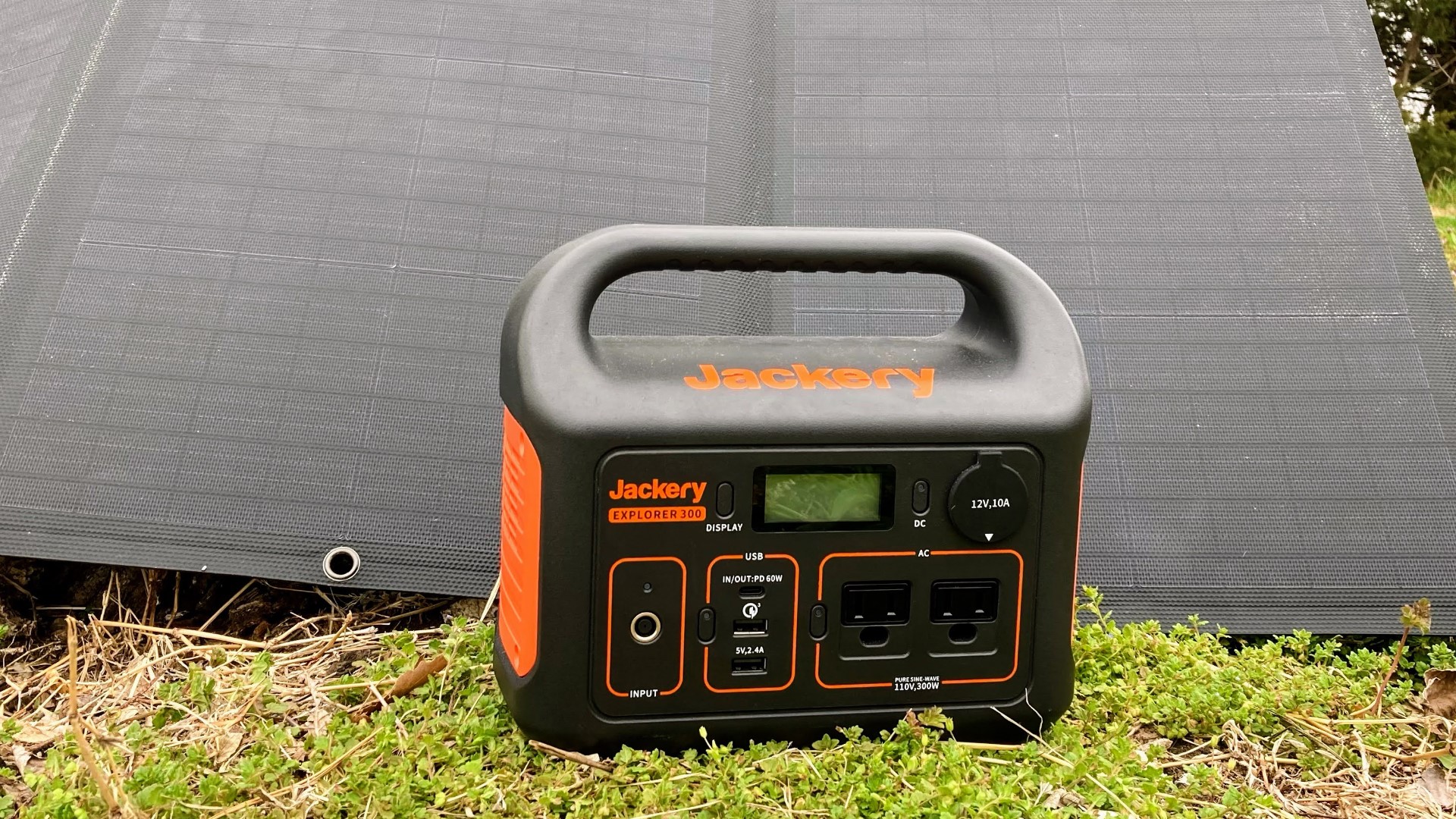
Power stations aren't just for keeping the lights on at home when the power goes out. These are excellent devices for power when you go to places where there isn't a grid available, or you don't want to mess with dragging out extension cords.
Of course, you likely won't need something like the EcoFlow Delta Pro in many of these situations. That is unless the devices you plan to run are high-wattage devices.
Knowing what you plan to use the power station for, and the electrical needs of the devices you plan to power, are key in getting the right battery for the job.
Many times, a smaller power station that is capable of between 300W and 1000W is going to be perfect. Primarily because these will be much smaller and easier to carry around than a Delta Pro that weighs nearly 100 pounds.
If you are going camping or hanging out in the backyard and just want to keep your phones charged, your favorite Bluetooth speaker powered up, run a fan, or some lights, then 300W will be great.
There are a lot of power stations in the 500W and under range. Still, two of my favorite are the Jackery Explorer 300 and the Fanttik EVO 300. These both offer 300W, but have different features that make each one better for specific situations. Most importantly, each of these power stations (like others in the same power output category) are compact and easy to move around.
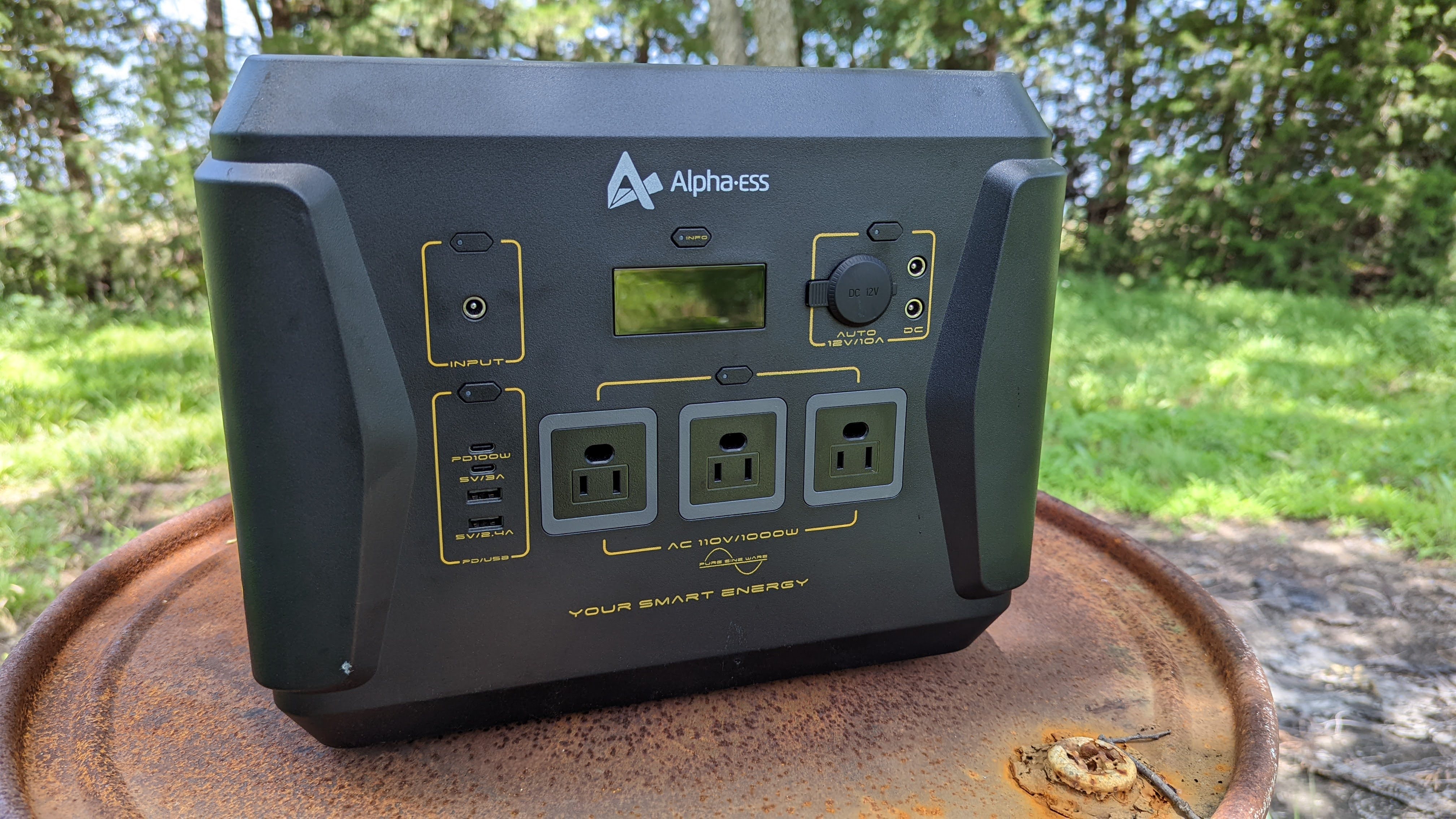
You'll find numerous output ports from USB to standard wall outlets to run multiple devices simultaneously. But suppose you want a bit more capacity and power output without losing easy portability.
In that case, it's worth looking at a power station with 1000W. I've been testing an AlphaESS AP1000 and an EBL Voyager 1000 that have a good supply of ports to plug things into, and enough output to power more demanding devices.
Power for free

Similar to moments when power is unexpectedly lost in your home, a large power station can also help save you money and the environment. Another name for battery packs like we've been talking about is — solar generators.
This can be a bit confusing because that term makes it seem like these devices are creating solar flares or something. They get this name because they can harness the sun's power through solar panels and create usable electricity.
The right solar generator and some solar panels can do the job if you want to save money or remove some strain from the power grid.
Thanks to solar panels, I can use the EcoFlow Delta Pro and an expansion battery to power my home-built camper trailer. I can leave my gas generator and fuel at home to use a silent and non-smelly power station to run the AC, lights, microwave, and more. While this is great, these solar generators can go even further.
My office is in a small building separate from my house, and so I use a window AC to keep it cool in the summer. This added appliance not only adds to the strain on the electrical grid, but also on my bank account. So, I have been using the Bluetti EP500 Pro with some solar panels to fun the air conditioner in my office, making the cost to stay cool free.
Power when and where you need it
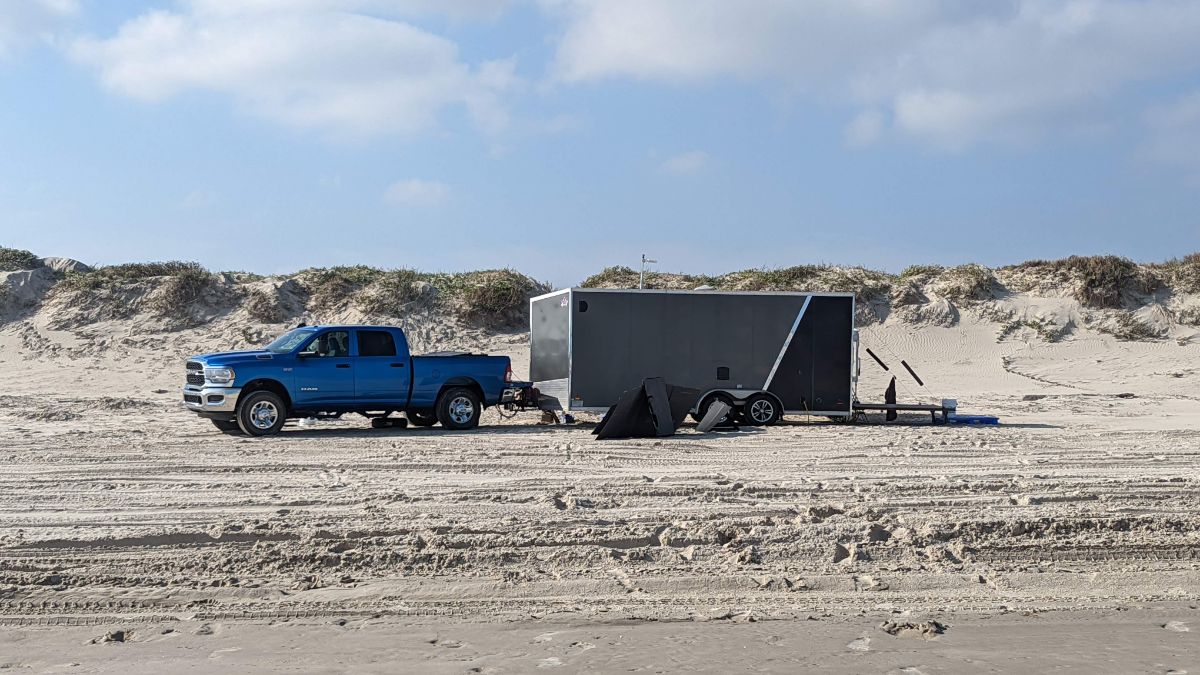
The sense of freedom and peace of mind that power stations can offer is great. Knowing that you are prepared for an electrical outage, the convenience of taking power with you anywhere you go, and being able to save money and reduce your impact on the environment are wonderful byproducts of power stations. Coupling those things along with the fact that you can recharge these devices using the sun makes them even better.
Although power stations are not cheap, at the moment, a good rule of thumb is to plan on a dollar per watt of power. So, 300W power stations usually cost around $300, and a 3000W unit will run you around $3,000.
However, depending on your use of the device, the purchase cost may be far outweighed by the benefit of having power when others don't or by offsetting the long-term cost of paying to use the electrical grid.
Be an expert in 5 minutes
Get the latest news from Android Central, your trusted companion in the world of Android

